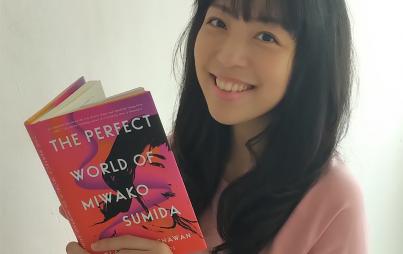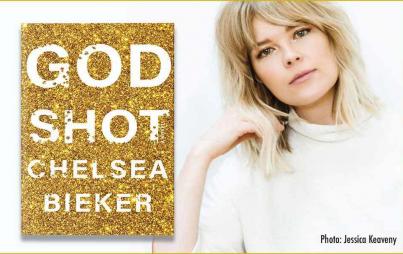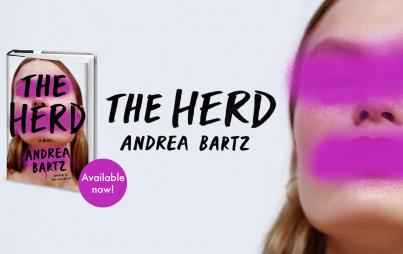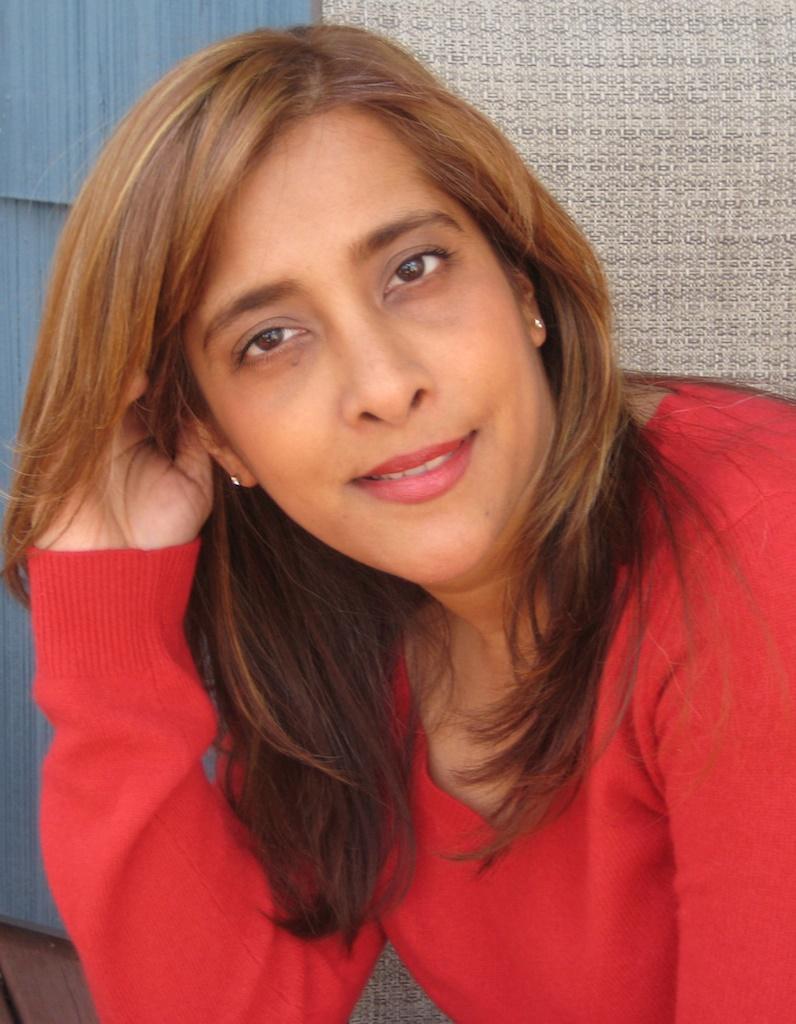
The fictional worlds created by Amalie Howard are unabashedly fantastical.
Howard's life isn't as fantastical as the worlds she creates for her successful young adult books, which have featured a human avatar for an immortal Indian goddess, an android war, and a powerful witch. But as far as lives in the real world go, it's nonetheless pretty remarkable.
A native of Trinidad and Tobago, Howard has traveled to 180 cities, had her first poem published at age 12, rides a Harley Davidson motorcycle, and has been an accomplished fencer, ballet dancer, and scuba diver. And in an industry with a long history of failing to reflect diversity, she's served as a powerful voice in the movement to better represent women of color in publishing.
On her website, Howard describes herself as a "dreamer, Jedi, story spinner, ninja, evil genius, and author"—a multifaceted description that seems perfectly apt.
We spoke with Howard about her extraordinary life and the extraordinary worlds she creates, and why she's pushing to diversify the world of publishing.
You've been writing from a very young age. What compelled you to express yourself through the written word from early on?
I began writing when I started reading on my own, probably around six. I was always scribbling some story or another into a journal. I had my first poem published when I was 12, and I won an award in a global youth competition when I was 15. The story was about a man whose daughter's soul lived in a weeping willow, and he could only communicate with her through his violin. Even back then, my imagination had a fondness for fantasy. I wrote a lot of poetry during my teen years—for me, writing was cathartic, especially during some of those tougher teen times, like my first crush, and peer and parent pressure. Over the years, the pencil may have evolved into a laptop, but writing was and still is a huge form of escapism for me.
Tell me more about this exciting life of travel you've enjoyed. Of the 25 countries you've visited, which surprised you most? Which would you return to tomorrow?
I've visited nearly 180 cities in the world, and I've had some wonderful (and surprising) experiences. In Macau, I bungee-jumped 765 feet off of the Macau Tower. That's nearly the length of three football fields. Talk about taking a leap of faith with only a giant extra-stretchy rope attached to your ankles! I didn't think I could do it, but I did. In New Zealand, I took a helicopter to the summit of Mt. Hutt and skied down the mountain on double black diamond trails that had steep gorges and sheer cliffs on either side with NO barriers. Clearly, I'm a thrill-seeker. I'd return to Paris in a heartbeat. In fact, I was just there last March with my mom, and it continues to hold a special place in my heart.
How have your globe-trotting experiences informed your fiction writing?
I really believe that traveling the world has helped me to craft my characters, especially the ones that aren't human (whom I have to invent). How do they evolve? How are they different from regular people? How are they the same? I enjoy using elements and facets from all the different cultures I've interacted with over the years to develop compelling scenarios and create robust characters in my writing. I also like to include some of my favorite cities in my novels, for example, Paris and New York in Bloodspell, San Diego, California in Waterfell, Fort Collins, Colorado in The Almost Girl, and Westchester County, New York in Alpha Goddess. Although a writer can research anything online, writing about a place I've actually been to helps me to picture scenes and places more vividly. It allows me to create more authentic descriptions, so that my readers can feel like they are there, too. 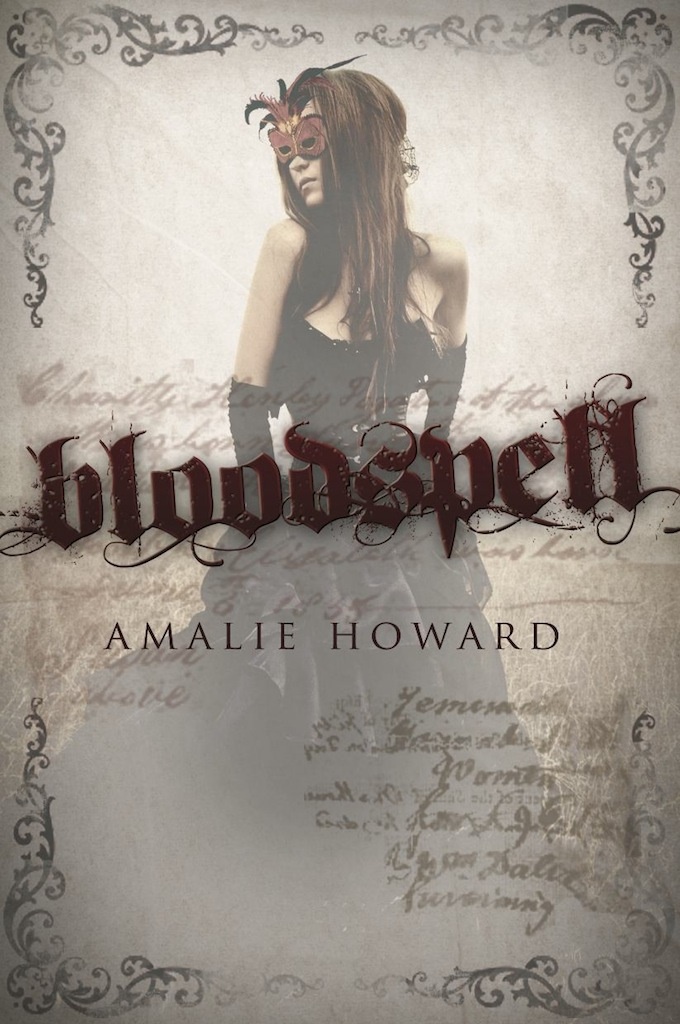
Why write young adult fiction specifically, instead of adult fiction? What are you hoping to convey to a younger audience?
The short answer is that I love writing YA. I think as adults we sometimes forget how intense teenage life can be. Everything is more life or death, even something as simple as a crush: "I'll die if he doesn't notice me." I mean I remember thinking those very words and the feeling of my heart rising into my chest and then dying a crushing death when said boy didn't notice me. After all, as a teen, you're navigating the waters of friendships, relationships, parents, school, teachers, identity, self-worth, and confidence with a whole bunch of raging hormones thrown into the mix. It's the antithesis of easy. In my books, I love incorporating the intensity of teenage life—the discovery, the defiance, the self-confidence, the flaws of youth, the vibrancy of it, the all-or-nothing mentality—because it makes the stakes so much higher and the scenarios far more compelling. Through my books and my characters, I hope to show my teen (and adult) readers how to be resilient . . . like when life throws you a curveball, don't be afraid to take a swing. Life's not going to be easy at the best of times, and it's about how you respond to those challenges. Face what comes your way with courage, trust yourself to do the best thing you can do, and don't be afraid to have an open heart. Sometimes, you just have to take the jump without knowing what's on the other side.
You are drawn to dark fantasy and sci-fi—from witches (Bloodspell) to war-torn parallel worlds (The Almost Girl) to a Lord of Death (Alpha Goddess). Why are you compelled to explore these themes, particularly in books geared toward a YA audience? And what can these fantastical themes reveal about our own world?
Clearly, I love escaping reality. Fantasy and science fiction have always been my true loves. Don't get me wrong, I love a great contemporary novel as much as anyone, but getting lost in an epic fantasy world or meeting characters from other planets who have superhuman powers is icing on the cake for me. My love affair with fantasy and science fiction began with Grimm's Fairy Tales and continued with books like The Lion, The Witch & The Wardrobe, Lord of the Rings, and Dune. In my own writing, I like being able to push the boundaries of reality, to create mind-boggling "what if" scenarios.
For example, with Waterfell, what if sea monsters really did exist? And what if they were a species from another planet hiding on ours? And what if they could shift into human form? With science fiction and fantasy, the world-building and world-shaping possibilities are endless. I love that you can construct whole worlds with elements that may not exist in real society. It's about pushing the boundaries of our imaginative capabilities, ones that force us to ask questions about the lives we live—whether that's about our place in the world, or what we contribute, or who we can become.
As a woman of color, what's your take on the current state of racial diversity in fiction?
I think we're getting there, and we are moving in the right direction. With the recent efforts of sites like Diversity In YA and We Need Diverse Books, diversity in fiction is becoming more visible and generating positive buzz. I do think we all have equally important roles in promoting diversity in literature. More writers are embracing multi-layered characters in their books, and I'm also seeing that these characters are moving from supporting to main, which is refreshing. The publishers seem to be the ones that come up against the biggest roadblock because they want to be commercial, and they are driven by bottom lines, which means that they buy the same "successful" white-washed characters/plots/settings/authors. I have seen dozens of articles where publishers say that "diverse material" doesn't sell. We (readers, writers, editors) have to change this way of thinking. Fiction will constantly evolve to suit its audience, and if more people demand more diverse books, the model will eventually shift.
Why is it important to diversify further—and what can be done to accomplish this?
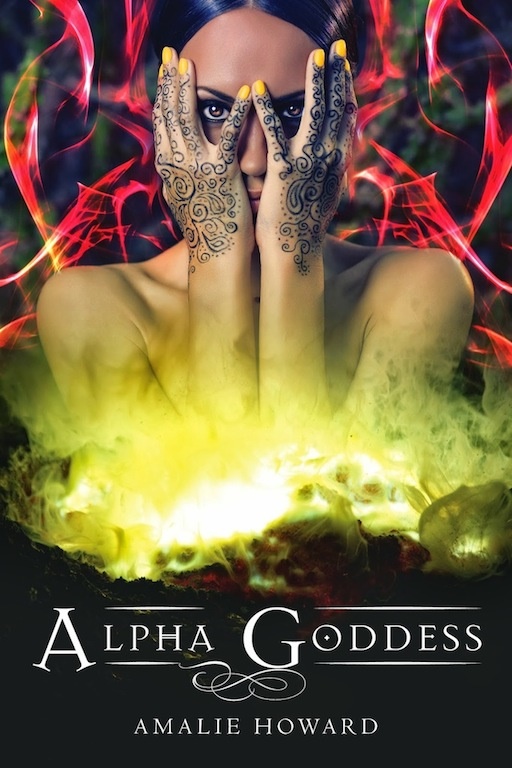 It's critical. Publishers need to employ people with more diverse experience, source more writers of color, and be aware that they have to actively promote such titles or the purchase mentality is going to stay the same. For many readers who may not live in culturally diverse areas, these books provide a view into the lives of other cultures that they may not experience first hand. They provide a greater understanding and appreciation of the world we live in. At the end of the day, we all have to do our part—go out and buy books with diverse characters and material. Support other authors. Embrace diverse fiction. Push for change.
It's critical. Publishers need to employ people with more diverse experience, source more writers of color, and be aware that they have to actively promote such titles or the purchase mentality is going to stay the same. For many readers who may not live in culturally diverse areas, these books provide a view into the lives of other cultures that they may not experience first hand. They provide a greater understanding and appreciation of the world we live in. At the end of the day, we all have to do our part—go out and buy books with diverse characters and material. Support other authors. Embrace diverse fiction. Push for change.
Your book Alpha Goddess, which focuses on Indian mythology, was deemed by some publishers as "too exotic." How have you personally responded to incidents like this that reveal lingering racial biases and stigmas?
Honestly, the "too exotic" response floored me. However, I didn't let this hold me back or make me give up. I also didn't get offended, despite my surprise. Publishing, as I've alluded to before, is a business. Alpha Goddess eventually got sold to Sky Pony Press (the children's imprint of Skyhorse Publishing). My editor, Julie Matysik, who bought Alpha Goddess had this to say:
"As a reader I'm drawn to books from all different cultures and that include diverse characters. When I was pitched Alpha Goddess and read the manuscript, I couldn't help but be drawn to Sera as a well-defined, powerful, and inspiring main character. And the story is such a wonderful and creative take on a classic myth that far too many people are unfamiliar with. What I saw in this book was the potential to draw in readers by a killer story and main character-the diversity part of it is just a huge added bonus in my opinion."
More publishers need to approach books like this. Literature should be reflective of the world in which we live, and as readers ourselves, we need to demand that kind of diversity. We need to show publishers that it IS commercial, that we want to read this kind of material. The support of librarians, booksellers, and educators to encourage readers to try more diverse fiction with diverse characters/settings/situations is crucial for its success. As far as a personal response, as a person/author of color, I think we need to continue to educate, continue to have open discourse, and accept that this, too, will take time.
How have readers of color responded to both your characters, and you as a writer?
I think readers of color appreciate reading about diverse characters in books—not only does it bring a different perspective to the table, but they may also see parts of their own experience reflected in the book. As far as responding to me as a writer, the more I participate in events like the panel I did for YALSA's (Young Adult Library Services Association) Literature Symposium last year—"Where Are The Heroes of Color in SciFi and Fantasy"—the more exposure and feedback I get. Responses like this one make it worthwhile:
"I left the session feeling better about the future of diversity in publishing, when usually such themed panels tend to be discouraging and full of platitudes, not action. The panelists are proof that diversity sells, proof that librarians buy it, and proof that editors know that the official party line on diversity being niche is total BS. With these people helping to pave the way, I look forward to what's coming next." –(Hannah Gomez, YALSA Hub Contributor)
That is the core of what we are all working towards—exposure, education, discussion, and action.
You've touched on the racial tensions you confronted growing up in Trinidad and Tobago. Can you talk more about this? How did this shape both your personal identity and your identity as a writer? 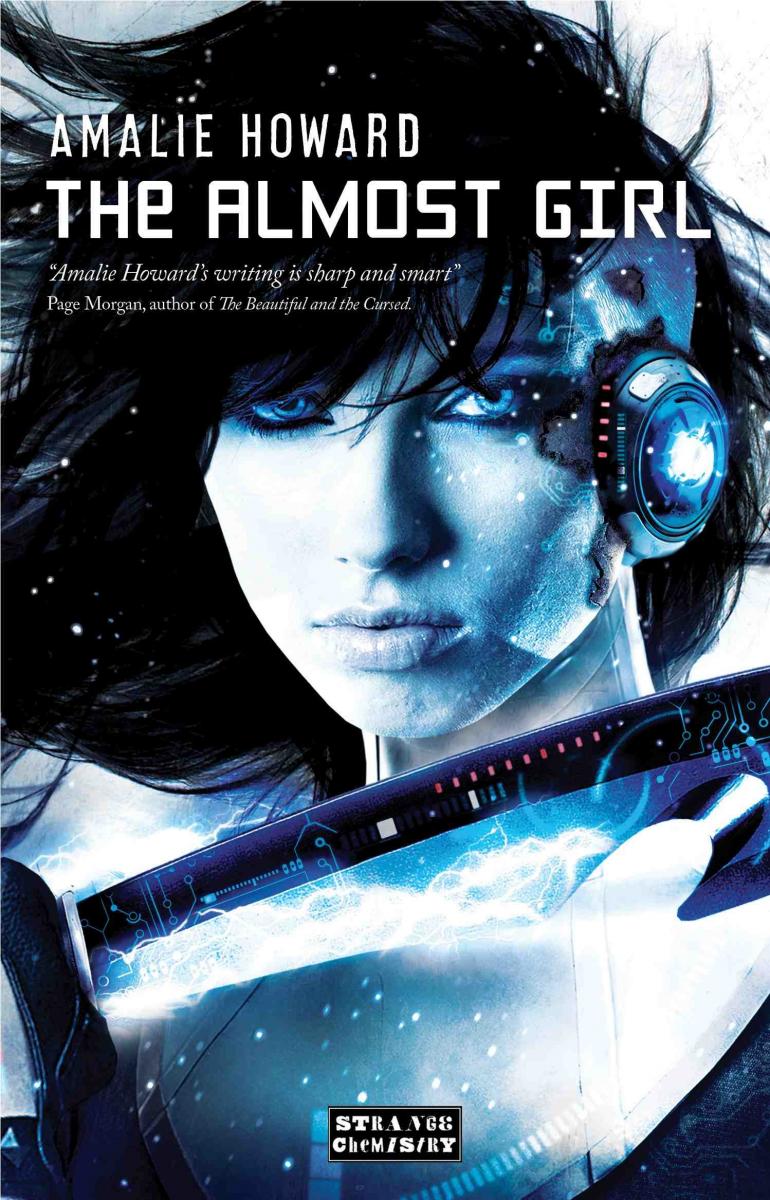
Growing up in Trinidad and Tobago, I had a healthy awareness of the color of my skin because the culture of my country was so polarized between browns and blacks, especially post-colonization. Color was extremely divisive—in politics, in the economy, in schools, in geography. I'm of East Indian descent on my father's side and Middle Eastern/East Indian/French descent on my mother's. I grew up in a multicultural, multi-religious, multilingual home. Most would consider that as an incredibly cool background, but the truth was, it made it even harder to figure out who I was. I was the "other" on all those social profiling forms. For a long time in college, I tried to fit in, pretending to be someone I was not. After all, which teenager wants to identify as "other?" Not me. It took a while, but eventually, I had to figure out who I was before I could stand on my own to accept and value my differences. I had to understand what being brown meant. And to tell you the truth, I'm still learning what that means.
As an Author of Color, there's an expectation that you're going to write a book about a person of color or about different cultures. When I wrote my first book, a fantasy story about a witch, my agent got a lot of feedback from editors saying, "Why doesn't she write a book about her background and her culture? It's so interesting." The thing is, I wasn't ready to write that kind of book. Yes, I do incorporate a lot of my background in my stories and in my characters, but I'm not going to write a book about Indo-Caribbean culture because that's what is expected of me. Why is it a fait accompli that I should write about the socio-political human condition because my skin is a different color? I grew up reading and writing fantasy and sci-fi because that's what I loved. I devoured C.S. Lewis, Tolkien, Greek mythology, and pretty much anything I could get my hands on. And most of the protagonists in these books were white or their skin color wasn't defined. That made no difference to me—it didn't impact my reading experience (or make me think about skin color) one bit. It was all about the story.
However, I can be quite conscious of color when it's in a novel. I don't appreciate it if it's in there for gratuitous commercial reasons or as a marketing ploy to hit a diversity target—"hey, let's pop in the gay, black best friend because it will diversify our market." The people you're trying to reach see right through that—it's gimmicky, and frankly, it can be offensive. For me, it has to be real and applicable to the story that is being told. It has to be meaningful. When I wrote Alpha Goddess, I knew it was going to be a different kind of story that heavily leveraged my Indian background. That said, with this novel, it isn't just the skin color of the protagonists that makes it different or diverse, or even that a Person of Color wrote it—it's because it brings a whole new cultural mythology to the YA table. And that to me is the core of diversity in art—showcasing and celebrating anything that is considered to be "other."
You're a deep-water scuba diver who fenced competitively and once crashed a Playboy Mansion party . . . among many fascinating details you've revealed about your unconventional life. What is one interesting fact about yourself you haven't divulged to the public before?
I can read minds. No, seriously, I can. I know exactly what you're thinking right now, and yes, you should totally have that piece of chocolate.
What's next for you?
I'm working on several different projects. I've just completed a near future, technological YA thriller, which has a male protagonist that I'm very excited about, that is currently with my agent. In addition to that, I have outlined the sequel to Alpha Goddess, which I've submitted to my editor, and I also finished writing the sequel to The Almost Girl (The Fallen Prince), scheduled for publication in early 2016. Lastly, I'm working on a magical realism project with another YA writer, and I am in the home stretch of a new YA epic fantasy that I plan to pitch to my agent next month. All in all, I have my hands full, and continue to be very grateful for all the readers who support me. I couldn't do any of this without them.



